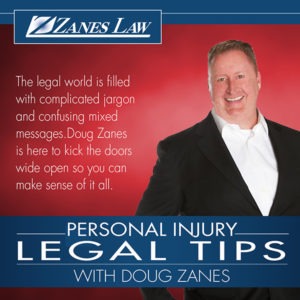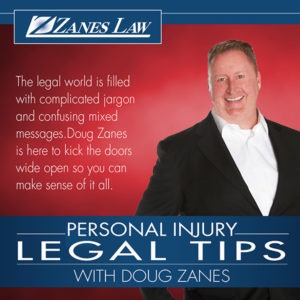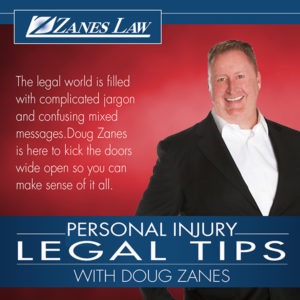![]() Contact Us (866) 499-8989
Contact Us (866) 499-8989
What does Yielding the Right of Way Mean?
- Common Right of Way Situations Where Yielding is Necessary
- How to Determine Right of Way in Roundabouts
- Consequences of Failing to Yield the Right of Way
- How Yielding the Right of Way Affects Accident Liability
- Tips for Safely Yielding the Right of Way in Different Scenarios
- Conclusion
- Home
- FAQs
- Personal Injury
- What does Yielding the Right of Way Mean?
Right of way refers to the legal right of a road user (driver, cyclist, or pedestrian) to proceed with priority in a particular situation. Yielding the right of way means allowing another road user to go first. It’s a fundamental rule that helps maintain order and safety on our roads.
Understanding the rules of the road is crucial for safe driving. One of the most important concepts to grasp is yielding the right of way. If you’ve been involved in an accident where right of way was a factor, our Phoenix personal injury lawyers can help you. Here’s what you should know about the rules regarding the right of way.
Common Right of Way Situations Where Yielding is Necessary
Drivers must yield the right of way to let cars go first in several situations, including:
- At stop signs or yield signs
- When entering a road from private or public property
- At uncontrolled intersections where another vehicle has already stopped
- When turning left at an intersection
- When merging onto a highway
However, even if you have the right of way, other cars may not yield because they’re not paying attention. Always be prepared to stop if it means avoiding an accident, even if it’s your turn to go.
Right of Way Rules for Pedestrians and Cyclists
While pedestrians and cyclists often have the right of way, it’s not absolute. Pedestrians have the right of way in marked crosswalks and at intersections. They must obey traffic signals and not suddenly leave a curb into traffic.
Cyclists generally follow the same rules as vehicles but have additional rights in bike lanes. Vehicles must yield to bicycles in bicycle lanes.
Who Goes First at an Intersection?
How do you know who has the right of way at an intersection? At intersections:
- The first vehicle to stop should go first.
- If two vehicles stop at the same time, the one on the right goes first.
- Left-turning vehicles yield to oncoming traffic.
Emergency Vehicles and Right of Way
Emergency vehicles always have the right of way when their lights or sirens are active. When an emergency vehicle with flashing lights or sirens approaches you, pull over to the right side of the road if possible. If you can’t move right, slow down and let the vehicle pass.
If an emergency vehicle hits you while trying to get out of the way, contact our Phoenix emergency vehicle accident lawyers for help.
For a free legal consultation, call (866) 499-8989
How to Determine Right of Way in Roundabouts
Roundabouts can be confusing for many drivers, and they’re not as common in the U.S. as standard intersections. Here’s what you need to know about yielding the right of way in a roundabout.
- Entering the roundabout: Vehicles already in the roundabout have the right of way. As you approach, you must yield to traffic already circulating.
- Counterclockwise movement: Traffic in a roundabout always moves counterclockwise in the United States. This means you should always enter to the right and continue in that direction.
- No stopping: Once you’re in the roundabout, keep moving. Don’t stop to let other vehicles enter – this can cause confusion and potential accidents. The exception is for pedestrians or cyclists crossing crosswalks.
- Exiting: Use your right turn signal when you’re ready to exit the roundabout. This helps other drivers know your intentions.
- Multiple lanes: In multi-lane roundabouts, pay attention to lane markings. The lane you choose when entering should be based on where you plan to exit.
Consequences of Failing to Yield the Right of Way
Failing to yield the right of way can cause a crash. The driver who fails to yield may face serious consequences like:
- Traffic citations could lead to fines, jail time, or license suspension.
- Points on their license: This can increase insurance rates and raise the risk of license suspension or revocation.
- Accidents: Not yielding is a leading cause of collisions.
- Legal liability: In an accident, drivers who fail to yield could be liable for damages and injuries.
If you’ve been in an accident due to someone failing to yield, the odds are in your favor that you will be owed financial compensation. Failing to yield is a negligent act.
Click to contact our personal injury lawyers today
How Yielding the Right of Way Affects Accident Liability
Right of way plays a significant role in determining liability. The driver who failed to yield is often considered at fault. However, all drivers have a duty to avoid accidents if possible.
In some cases, both drivers may share fault if neither yielded appropriately. If you share fault, Arizona’s comparative negligence law means your proportion of fault may reduce your compensation by that much.
Complete a Free Case Evaluation form now
Tips for Safely Yielding the Right of Way in Different Scenarios
How can you ensure you yield correctly? Here are some tips for safe yielding:
- Always be prepared to stop, even if you have the right of way.
- Make eye contact with other drivers, pedestrians, or cyclists when possible.
- Use your turn signals so other drivers can learn your intentions.
- In unclear situations, err on the side of caution and yield.
- Be especially cautious in school zones and residential areas.
Remember, yielding the right of way is about more than following rules—it’s about keeping everyone safe on the road.
Conclusion
Yielding the right of way means letting other drivers pass or turn first according to the rules of the road. People who fail to yield are at risk of causing a serious accident.
If you’ve been injured in an accident where someone failed to yield, contact our Phoenix failure-to-yield accident lawyers for a free consultation.
Call or text (866) 499-8989 or complete a
Free Case Evaluation form
 Injury Lawyer Doug Zanes Interviewed For “Business Leader Spotlight”
Injury Lawyer Doug Zanes Interviewed For “Business Leader Spotlight”
Doug was recently interviewed by Randy Van Ittersum on the "Business Leader Spotlight Show." It was a great experience and gave him the opportunity to share important topics that are super
 Need Personal Injury Legal Advice? Listen to Our NEW Podcast by Doug Zanes!
Need Personal Injury Legal Advice? Listen to Our NEW Podcast by Doug Zanes!
We are excited to announce that we have officially launched the Zanes Law Personal Injury Legal Tips podcast, featuring advice from Zanes Law owner and responsible attorney Doug Zanes. When
 Should you hire an injury attorney? 5 Things You Need to Know
Should you hire an injury attorney? 5 Things You Need to Know
We know that when you’ve been injured in an accident, it can be difficult to take legal action quickly. After an accident, you might just want everything to be over and done with, so you
 Can I Settle An Injury Claim On My Own?
Can I Settle An Injury Claim On My Own?
Nobody expects to be in an accident—let alone get injured in an accident—but when it does happen, you may be asking yourself a lot of questions, including, “Can I settle an injury claim on my
Receive a Free, No-Obligation, Case Evaluation Now



